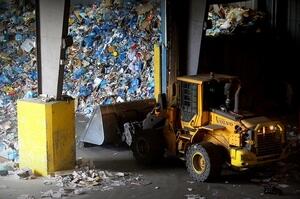Insufficient transnational actions in the field of waste management clearly hamper the development of this area in the Baltic Sea Region. The “Reco Baltic 21 Tech”, partly funded by the Interreg IVB Baltic Sea Region Programme 2007-2013, aims at strengthening the capacity of Baltic Sea countries to climb the waste hierarchy and meet the various EU directives. The project RB21T is running from October 2010 to September 2013 and is expected to create innovative business opportunities in the Clean-Tech industry. Operationally, RB21T will establish a transnational and cross-sectorial platform for expertise exchange in waste management in the Baltic Sea Region, which will increase its competitiveness. RB21T will directly target and assist 30 decision makers on the local/regional and national level about to realize a waste management investment, drawing on the latest research and Best Available Technologies (BAT).
Objectives of the project
The overall objective of the project is to improve the local and regional capacity to apply the process of implementing waste management that support the implementation of the EU Waste Management Directive, helping countries in the Baltic Sea Region to address their problems with waste management and disposal. The subobjectives of the project are:
Institutionalising the project results:
· To put into practice systematic approaches to waste management developed in the RB21T project (the network, Waste Management Planning System (WAMPS), guidelines and handbooks).
· To provide a platform across the Baltic Sea Region that enables cooperation in waste management through close collaboration of expert organisations, suppliers of waste technology and stakeholders.
· To elaborate a strategy (BSR level) and investment model that defi nes necessary actions ensuring organisational learning within and between authorities to continue to develop WM and lower the transaction costs.
Exchange of good practice and Best Available Technologies
· To jointly select and build pilot projects based on good practices.
· To develop at least two concrete investment projects per country, disseminate them at the Baltic Sea Region level and attract external funds for these pilots of €20 million.
· To give project partners opportunities to put into perspective their waste management needs, via the identification and exchange of good practice, to consider waste as an asset for innovations, business opportunities and employment.
· To improve the capacity to overcome difficulties faced when selecting suitable waste management methods and techniques

